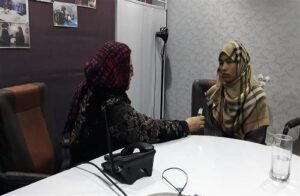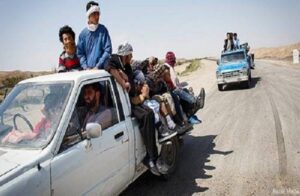.jpg)
KABUL (SW) – All is set for the Geneva Ministerial Conference on Afghanistan in Switzerland later this month that would see Kabul showcase its achievements to earn a renewal of commitments from the international community.
The two-day conference on November 27 and 28 would be attended by the high-level government delegation from Afghanistan led by President Mohammad Ashraf Ghani, along with Abdullah Abdullah, Chief Executive Officer and a number of ministers. At least 70 countries and 30 international organizations would be hosted by UNAMA at this conference for talks with the Afghan delegation.
On the first day of the conference, the following will be discussed:
- The state of the private sector
- The state of human capital with a focus on women
- Food security and livelihood
- Support for refugees, IDPs and returnees from Iran and Pakistan
On the last and important day of the conference, matters on the agenda would include the issues of state-building, public financial management and the terms and conditions that the international community has set for Afghanistan. The peace process is also likely to be discussed on the side-lines.
But, the main purpose of the Geneva Conference is to measure and evaluate the performance and achievements that the Afghan government committed to in the 2016 Brussels Conference. The National Unity Government pledged two years back to accelerate the process of electoral reforms, strongly fight corruption, improve the social conditions and ensure political participation of women, bring reforms in the civil service sector, and in particular, reform the education sector.
It is hoped the Geneva Conference would provide the Afghan government with continuation of international assistance in the areas of peace and security, infrastructure and human resources. The conference also signifies the unconditional support by the UN and the international community for state-building, peace and stability in Afghanistan.
On July 18 this year, a preparatory meeting was held for the Geneva conference in Kabul. The 21st Joint Coordination and Monitoring Board Meeting held at the presidential palace. With the participation of international organizations and donor countries, it covered issues such as the performance of the Afghan government over the past two years, the challenges it is facing and the reform agenda. .
The Geneva conference would take place between two such conferences, 2016 Brussels conference and another one scheduled for 2020. It was decided in Tokyo conference that the international community would meet in every two years at ministerial level and high-level representatives for the assessment and evaluation of assistance to Afghanistan.
Expected Outcomes of the Geneva Ministerial Conference on Afghanistan
- A joint communiqué.
- The Geneva Mutual Accountability Framework (GMAF).
- For the Government of Afghanistan: Gain the continued confidence and support of the international community and of the Afghan people by: presenting progress and continued commitment to reform, democratic processes and development for the people of Afghanistan.
- For the United Nations: Demonstrate unflinching support and commitment to the development of Afghanistan, as a key contribution for peace and security.
- For the international partners: Showcase solidarity with Afghanistan and demonstrate to respective domestic audiences that support is leading to results in Afghanistan.
ENDS





